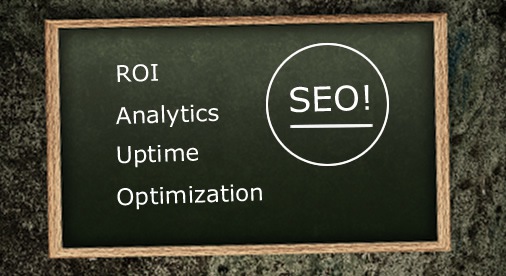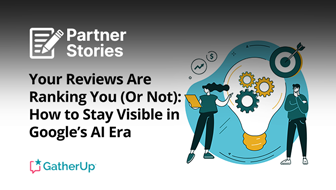
I believe there’s a process that any person can go through that will make them a better marketer, guaranteed. I started my own business in 2001 after spending seven years at a large company. I found out very quickly that when you venture out on your own, you truly are alone.
And it’s a lot scarier of a place than being in a corporate bubble. I found out that when you start your own business, the line between success and failure is razor thin. And when the decisions you make directly impact how well your business performs, you tend to look at things differently than when you are spending someone else’s money. And that’s an incredible lesson, and one that’s hard to learn elsewhere.
When It Gets Personal, You Learn Quickly
After launching my own business and mapping out my services and solutions, it was time to market them. That included taking a chunk of my own money to fund my marketing budget. And let me tell you, it was an entirely different feeling when I was spending my own money. Using my own hard-earned money to fuel marketing campaigns was an incredible experience and yielded some powerful marketing lessons.
You can’t learn those lessons in class, from a book, or even at a company that’s giving you a budget to spend. And the effect it has on your own business perspective and how you manage client campaigns is priceless (no pun intended). So, if you have never spent your own money to market a product or service before, you should (and I will quickly explain the process I recommend below). Then I’ll explain some inherent learnings you will gain during the process of “putting some skin in the game.” Are you up for the challenge?
The Process
If you’re ready to become a better marketer by funding your own campaign, then follow the process below. Believe me, you may never look at a client’s budget the same way again.
1. Identify Your Product or Service
The first thing you need to do is to identify the product or service you are going to market. You can market your own freelance service, a product you developed, training you built, an ebook you’ve written, or anything that you feel comfortable selling. If you don’t have anything to sell of your own, then find someone close to you that does.
For example, approach a family member or good friend that has a business and tell them that you’re going to help them market their product or service using your own budget (for a generous commission of course). Hey, if you are putting some skin the game, you should have the ability to be rewarded. Once you identify what you’re selling, make sure there is content online that you can drive prospective customers to. If a landing page or site hasn’t been created yet, you’ll need to build one (either by yourself or by using part of your budget.)
2. Stretch Out Those Alligator Arms & Reach Your Wallet
Yes, now you need to fund the campaign. Reach into your wallet and find your budget. To make this fair, let’s use a percentage of salary that could work for a majority of people. I recommend taking 5% of your total salary as the budget for your marketing campaign. So, if you earn $25K per year, you’ll spend $1250. If you earn $50K per year, you’ll spend $2500. And if you earn $100K, then you’ll spend $5000. And yes, it’s obviously ok to use less, if needed. Just make sure there’s enough budget to make some type of impact.
3. Develop Your Marketing Strategy
OK, online marketing big shot… now’s the chance to put your money where your mouth is. At this point, you need to map out your strategy to generate sales. Once you start brainstorming ideas, you’ll probably notice a transformation occurring. You might be taking this conversation a little more seriously now that your money is in the game.
Will you run paid search, Facebook advertising, how strong are your organic rankings, do you have an in-house email list, and what assets can you leverage that are already in place? You might experience a sudden feeling of excitement, fear, and nausea, and you might realize that you never felt this way until your own dollars were on the line. Don’t worry, you’re experiencing a side effect of entrepreneurship, and it’s hard to reproduce that feeling without funding your own gig (or riding roller coasters over the age of 35). By the way, I’ll explain more about the lessons you will learn during this process later in the post.
4. Projections and The Upside of Entrepreneurship
Even though you run the risk of losing your own money (and some of you will), you can also end up making money (if you do a good job and generate a profit). I’ll explain more about Return on Investment (ROI) later in the post. At this point, you should run projections based on various performance scenarios. Run the numbers using various success levels to identify how much you can earn. Once you have your strategy in place and your projections, you can get ready to launch.
Prior to the launch, you might have a few extra butterflies in your stomach. It’s ok, they are attached the money you are risking. Here’s where it gets interesting. When you run your own business and launch your own campaigns, there is no limit to what you can earn. You can earn as much as you can, based on how well your campaigns perform.
And if you started by investing $2500, but your campaigns are highly profitable, keep funding the campaign. I’m sure you would be ok investing $10,000 if you can earn $25K, right? On the flipside, there is a floor you can hit. And it’s a hard floor, and it can hurt. Unfortunately, you can crash and burn fast, and that can be catastrophic for a small business. I’m sure you’ve heard the following line before: With high risk, comes high reward.
Inherent Learnings By Funding Your Own Campaign
After launching your campaign, there are some key lessons and learnings that will naturally occur. I’ve listed several below along with a quick explanation of each. These learnings will stick with you forever… I know they did for me. Most importantly, you will never look at a client’s marketing budget the same way again. And that’s an awesome lesson. Note, I obviously didn’t provide every lesson you’ll learn below, but feel free to add your own learnings in the comments (if you’ve funded your own campaigns).

1. You’ll Learn The Formula For ROI Really Fast
Poof, where did your money go?? If you don’t already know the formula for Return on Investment (ROI), you will after launching your campaign. As money goes out, and some money comes in, you’ll want to know how well the campaign is performing. It doesn’t necessarily matter how much gross revenue you generate if you’re spending more than you bring in.
During your campaign, you’ll find yourself running this formula across campaigns and channels to understand your most profitable efforts. Once you do, you’ll naturally want to allocate more budget to the most profitable efforts. This is a great lesson and one that’s (insanely) overlooked too often by marketers… By the way, here’s the formula for ROI in case you need it:
ROI = (Gross Revenue – Expenses) / Expenses * 100
i.e. $7500 – $2500 / $2500 * 100 = 200% ROI
2. Web Analytics Is Critically Important
After launching your self-funded campaign, you might find yourself checking your web analytics reporting obsessively. Actually, your netbook might be connected to your hip with your web analytics reporting set to refresh every five minutes. 🙂
As your money rushes into your campaigns, you are going to want to know several things about the resulting traffic. Is it quality traffic, how many visitors are converting, how much revenue is being generated, and what are those visitors doing on the site? All traffic sources are not created equal and you’ll want a way to identify poorly performing efforts in order to kill them. You can achieve this by mapping out an analytics strategy and tracking conversion goals and events, but many bypass this process. They choose to fly blind, and flying blind is a dangerous thing to do in online marketing.
When it’s your own money on the line, you’ll want to track everything you can. If you can’t, you’ll be angry, frustrated, and run the risk of biting somebody’s head off. Again, it’s a strange side effect of entrepreneurship. It’s one of the reasons I dedicated an entire chapter of my ebook to tracking your online marketing efforts via Google Analytics (setup, strategy, and implementation).
3. Continual Optimization is Key
Big companies notoriously move slowly. But small companies can turn on a dime. I’ve always felt that refining campaigns on the fly is one of the most powerful things you can do in online marketing. You’ll want to structure your campaigns so they can easily be tracked, refined, and paused if needed. Online marketing is about continual optimization. You’ll find that you rarely knock it out of the park on your first try. That’s ok, as long as you have the right tracking in place, and you are measuring ROI properly. Wait, did I just thread key learnings together? 🙂
4. Destination Does Matter, Welcome to Conversion Rate Optimization (CRO)
Have you ever seen paid search campaigns that drop visitors on a homepage? When you launch your own campaigns (using your own money), you’ll probably never do this. Or, you’ll realize quickly how it can negatively impact your performance. If your goal is conversion (which it should be), then you’ll start to heavily analyze your landing pages. And as you start to analyze your content, you might start wondering how certain changes to that content can impact conversion. Yes, welcome to the incredible world of conversion rate optimization (CRO). What seems like small changes could actually impact a lot of revenue.
5. Uptime is Critical
As an extension of the previous bullet, you’ll understand how website uptime is critically important. If your site is down, you have 0% chance of converting visitors. And if you think they’ll return when your site is back up and running, you’re wrong. Chances are they visited one of your competitors to buy one of their products. That why I believe website monitoring is a simple, yet powerful tactic you should employ. Don’t skimp on hosting or your technical setup. You might end up paying a heavy price.
6. SEO is Amazing, I Want More SEO
We all know how powerful it is to rank highly for target keywords, but you will truly understand the importance of strong SEO when you are spending $X per conversion in other channels. When you pay for traffic and you pause those campaigns, you also pause revenue. That’s an ugly situation. SEO is residual and trusted. You’ll realize how incredible this can be for your business when it’s working 24/7 without an advertising budget. It’s not free, since you’ll have to work hard to rank for target keywords, but it can be a heck of a lot cheaper than paying for every visitor. Once you experience the SEO effect on revenue and compare the ROI of organic search to your paid efforts, you’ll turn into a big fan of search engine optimization. You might even where a giant “S” on your chest. 🙂
So What Are You Waiting For? Put Some Skin in the Game
As I’ve explained above, there’s a lot you can learn from investing 5% of your salary in a campaign. I think it’s an incredibly important process for any marketer to go through. I know how much I learned by going through this process earlier in my career, and I still learn new things as I launch my own campaigns. But in my opinion, the most important effect will be how you view client budgets moving forward. You’ll be more sensitive to how that budget is spent, you’ll have a laser focus on performance, and you’ll scrutinize every aspect of each campaign. You’ll realize that the concept of “success” is much clearer than some people make it out to be. It’s about making more money than you spend.





